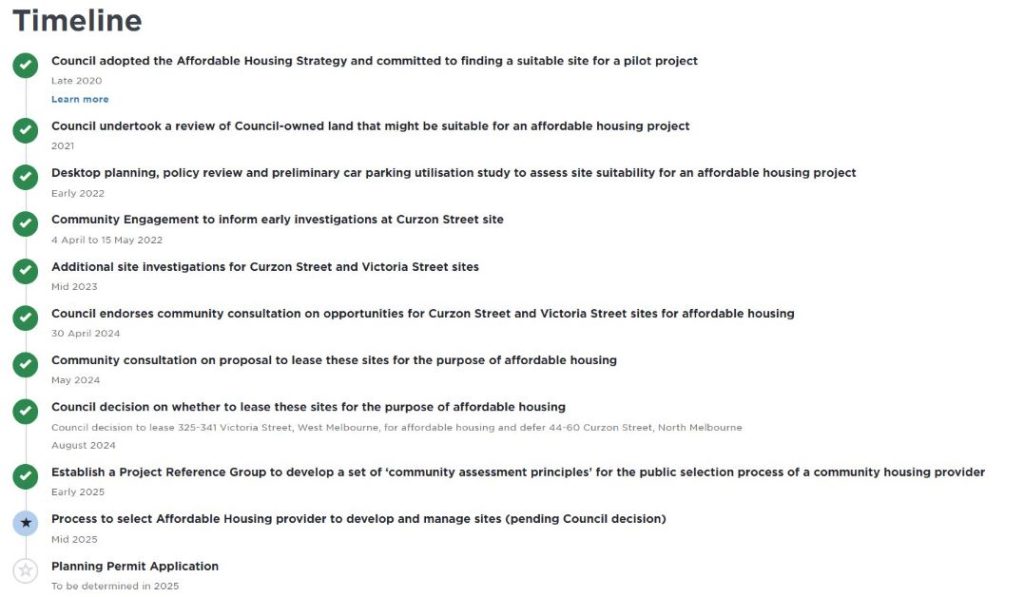The Victorian State government has been arguably the most proactive in terms of housing affordability policy reform. The government is zoning for high-density construction around public transport and loosening restrictions on townhouse construction.
At the local level, though, it’s clear there is a long way to go. Nothing exemplifies this like the fiasco that is the Victoria Street, Melbourne affordable housing project.
On 27 August 2024, in City of Melbourne’s words, “Council resolved to lease a council-owned car park at Victoria Street for the purpose of affordable housing.” Affordable housing enhances “liveability”, “productivity” and “diversity”, read the council statement.
This has been followed, this year, by a move to establish “community assessment principles” on the council’s decision-making around the project. Afterwards, there will be a further round of community consultation over who is actually to build the housing. The planning permit application for the site is (aspirationally) to be submitted in 2025.
Yet this so far is the least of our concerns. The 325-341 Victoria Street, West Melbourne development serves as a pilot project for City of Melbourne’s housing affordability strategy.
As you can see below, City of Melbourne first committed to identifying a site for the pilot construction in 2020. In 2021, the council “reviewed” land that might be suitable. 2022 saw community consultation and “desktop planning”, with 2023 centering on “additional site investigations”.

By 2024, a nearby car park at Curzon Street that is also owned by the council had been deemed too important for public housing. That leaves the result five years later as a plan to hold an open tender later this year for someone to start building the housing – on a single car park.
When in February the Productivity Commission found that housing construction productivity is worse than it was in 1995, they laid the blame on the mountains of codes and regulations implemented by glacial-speed local governments and authorities that don’t speak to one another.
Is it any wonder that a good chunk of the metropolitan population is consistently struggling to find somewhere secure to live?
Sign Up To Our Free Newsletter